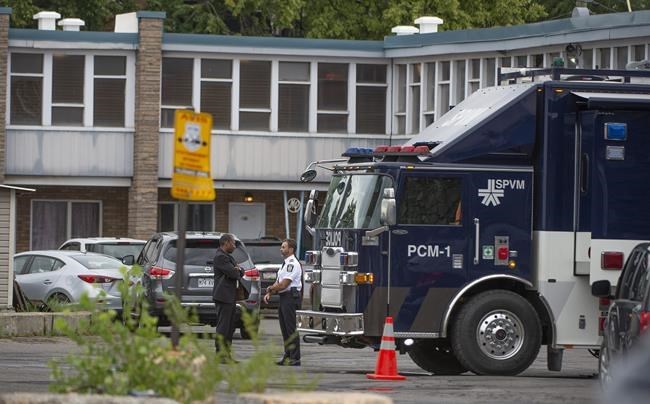MONTREAL — Quebec's chief coroner is launching a public inquest after a 26-year-old man allegedly shot dead three Montreal-area men last week before being killed by police.
Pascale Descary said Monday that coroner Géhane Kamel will investigate the deaths of André Lemieux, Mohamed Belhaj, Alex Levis-Crevier and suspect Abdulla Shaikh.
Shaikh was killed by Montreal police Thursday morning, after allegedly gunning down the three victims on the street within a period of about 24 hours.
Provincial police have said it appears the 26-year-old, who was known to have mental health issues, chose his victims at random.
Descary said the investigation will analyze the factors that contributed to the deaths and make recommendations to prevent similar tragedies.
"The hearings will allow any person of interest to express themselves concerning the circumstances of these deaths in order to analyze all the contributing factors, and this, with a view to proposing possible solutions for better protection of human life," the coroner's office said in a news release.
Quebec's mental health review board ruled in March that Shaikh, who was under the supervision of a mental health hospital, posed a "significant risk" to public safety but could continue living in the community.
The mental health review board — Commission d’examen des troubles mentaux — said in March the suspect's psychiatrist concluded that Shaikh suffered from "denial and trivialization of behavioural disorders, violence and psychiatric pathology."
The board recognized, however, that the suspect had shown improvements over the previous six months, and it agreed with the psychiatrist that he should remain released under certain conditions.
Quebec provincial police have said the suspect did not have a permit to carry a gun, but have not released details on how he obtained one.
Police allege Shaikh shot two men, Lemieux, 64, and Belhaj, 48, on Tuesday night in Montreal and killed Levis-Crevier, 22, in Laval, Que., around 24 hours later.
Stephanie Lefrancois, whose family has been friends with Lemieux since before she was born, said his friends and neighbours have been traumatized by the killings.
"We can't believe his life was sadly, unjustly ripped away like that, out of nowhere," she said in a phone interview.
Lefrancois describes Lemieux, a former mechanic, as a "very generous man" who took care of his elderly mother and was always helping his neighbours with repairs around their apartments.
She said he would visit her regularly, often to watch videos of his son, professional boxer David Lemieux, of whom he was incredibly proud.
Lefrancois says she, like many others, feels more needs to be done to stop gun violence in Montreal, which she says "didn't start yesterday."
"They didn't deserve to die like that, André, or the others," she said.
Premier François Legault, meanwhile, clarified comments he made on the shooter last week, after facing criticism for saying he was happy "we are rid" of the suspect.
Speaking Monday at an unrelated announcement in Quebec's north shore region, Legault said that he'd meant to say he was happy the suspect had been taken out of harm's way.
"Clearly I didn’t rejoice that he was dead, we don’t want that," Legault said. "There are people who have mental health problems."
Legault said the investigations underway, including the one announced by the coroner, would help clear up, among other things, why the suspect had been released.
This report by The Canadian Press was first published Aug. 8, 2022.
Morgan Lowrie, The Canadian Press



